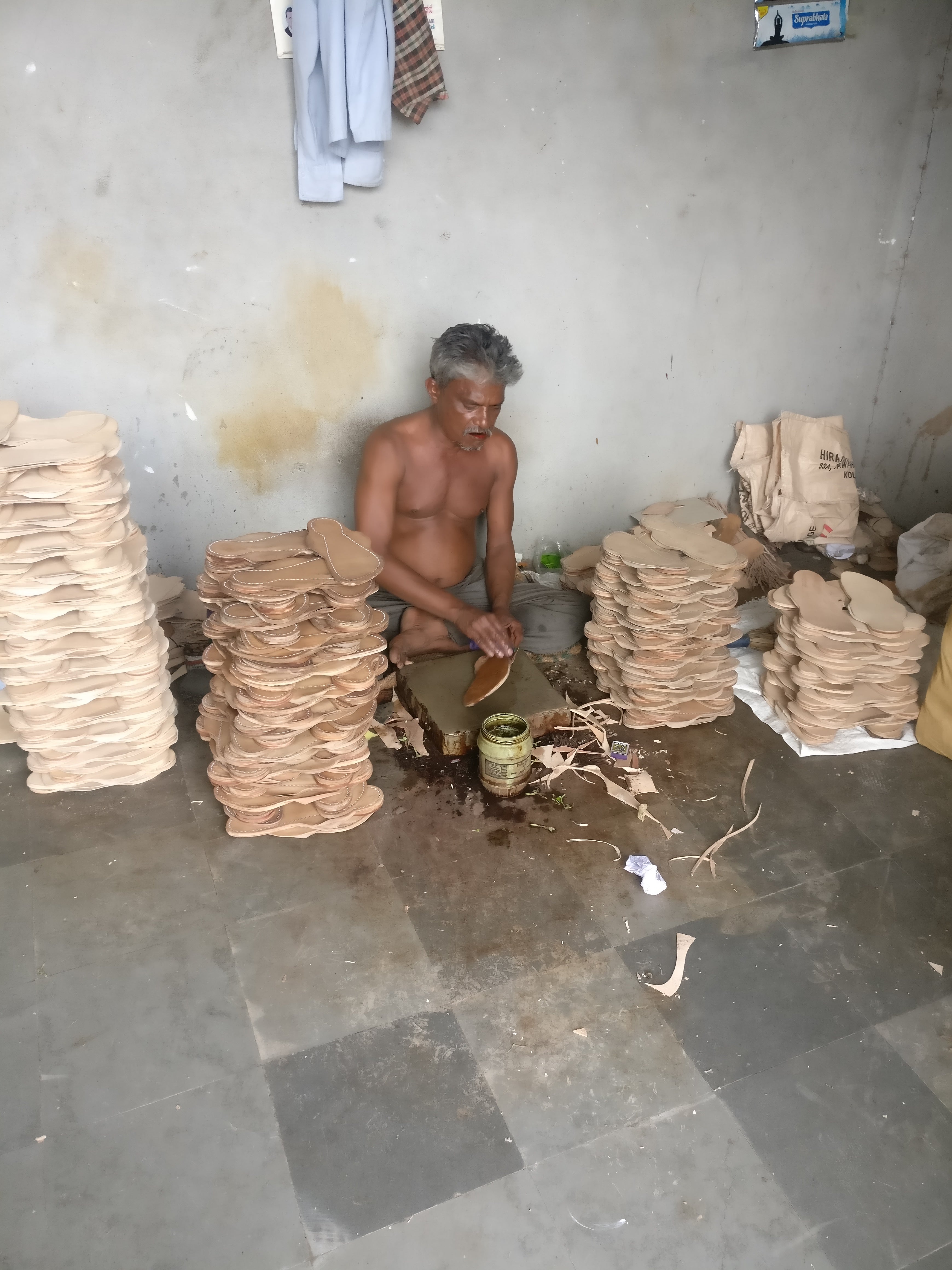To boost the production and market of Kolhapuri chappals (sandals), the Maharashtra State Khadi and Village Industries Board has organised a day-long meet between industry representatives and artisans from the district.
The meet will be held on May 5 in Kolhapur. “The State government wants to revive local businesses and we are starting with Kolhapuri chappals,” the chairman of the board, Vishal Chordia, told reporters on Friday.
“Such an initiative is being undertaken for the first time. Industry representatives will meet with the artisans, who will come to know the demands, expectations and taste of customers. They could tweak the traditional design of Kolhapuri chappal and foray into the market,” Mr. Chordia said.
A Kolhapuri chappal is a leather sandal with traditional designs. Its demand, however, is not the same as it was a few decades ago, and artisans are reluctant to invest in the footwear or market it aggressively.
Business potential
Mr. Chordia, who took charge of the board six months ago, said, “The average age of artisans involved in the making and business of Kolhapuri chappals is 50 years. It clearly means the young generation does not see any potential in this business. At the same time, we feel there is a market for this footwear and it should be explored.”
He added that Kiran Joshi, former vice-president of Bata footwear company, and Harshvardhan Patwardhan, who runs also a footwear company, will interact with artisans at the meet.
“There are 120 industries in Maharashtra that are linked with this board and we will continue to support them in the form of technical guidance and workshops,” Mr. Chordia said.
To a question on the impact caused on the availability of leather, due to the Union government’s ban on cow slaughter, Mr. Chordia said, “There is no impact as the leather industry is still thriving. It is the artisans who do not have any exposure to current market trends; hence the demand is lowering.”
He added that the board has already received ₹3 crore for a honey development project, under which natural honey collectors from western ghats will be trained.

